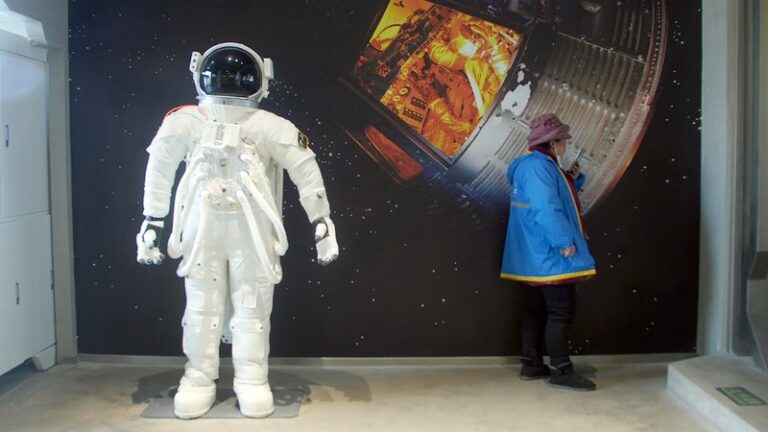
(AP) — Cui Tingting dyed her hair Mars red for the arrival of China’s spacecraft at the planet known in Chinese as the Fire Star.
“This is a great era for space, and the future of mankind lies in the exploration of outer space,” said Cui, director of the China Mars Society, the local chapter of a global advocacy network. She hosted an online party Wednesday night to wait for the announcement that the Tianwen-1 spacecraft, launched last July, had reached Mars orbit.
Video from participants across China showed a replica of Tianwen-1’s robot rover in the home of one society member. One wore a homemade space suit; another controlled his robot dog.
“Earth is our mother planet … but for me, Mars is the same,” Cui said.
China is falling in love with space, inspired by the ruling Communist Party’s increasingly ambitious plans over the past two decades to launch humans into orbit and explore the moon and Mars.
Tourists flock to tropical Hainan island to watch rockets blast off. Others visit mock Mars colonies in desert sites with white domes, airlocks and spacesuits. The number of space-themed TV shows, books and fan clubs is growing.
The most popular space-themed account on the Twitter-like Sina Weibo microblog service, “Our Space,” has 1.25 million followers.
The expanding space program coincides with President Xi Jinping’s campaign to promote an image of China returning to its former glory as a world leader.
“It’s a symbol of power for China,” said Chen Qiufan, a science fiction author in Guangdong whose books include “Waste Tide.”
Xi’s government is trying to nurture public enthusiasm with a five-year Scientific Literacy Action Plan. It includes a promise of support for developing Chinese science fiction.
In November, the city government of Beijing announced plans to build a science fiction industry cluster area to attract talent and create “influential original science fiction works.”
“You have to leverage the power of films, movies and science fiction to broadcast propaganda and this idea: we need to go there,” said Chen, comparing it to the Renaissance.
That love affair also is catching on in Japan, India and other countries that are sending probes across the solar system, joining a club of explorers long dominated by Washington and Moscow.
The race to explore Mars is so crowded that Tianwen-1 isn’t even the only spacecraft to arrive at the planet this week.
On Tuesday, Amal, a spacecraft launched by the United Arab Emirates, swung into orbit.





